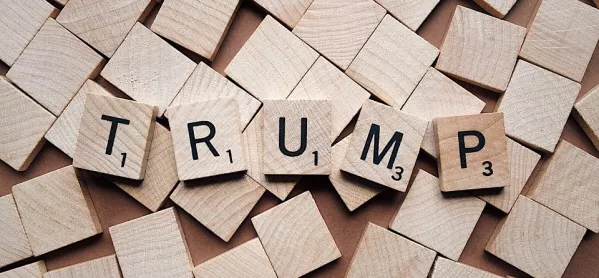Boggle Trump and Snozzle Trump were two of the trumpiest characters. But others showed similar levels of trumpyness. And the trumpiest of all was trumpwinningtastic.
“Trump” is children’s word of the year, according to a new analysis by Oxford University Press (OUP).
Not only do they like inventing characters - from aliens to superheroes - with the name of the 45th US president, but they also blend his name with new prefixes and suffixes, to create new words.
The OUP analysed more than 130,000 short stories, submitted to a BBC writing competition by children aged between five and 13. It looked at the words that occur on a regular basis across the stories, and comparde these with the words that dominated previous years’ entries.
Trumpdiddlydumper
Use of the word “Trump” had increased by 839 per cent since last year. But children took the word out of its US political context in order to invent new characters, such as Boggle Trump, Snozzle Trump and Trumplestiltskin.
They also coined new nouns - trumpyness, trumpido and trumpeon - as well as adjectives: trumpwinnningtastic.
One 10-year-old girl wrote: “The train’s track has broken because a mean Trumpdiddlydumper blew a bit out of the track.”
There were, however, more traditional uses of the word, too. One 10-year-old wrote: “Suddenly, I did the loudest trump EVER!”
Other pupils played with Trump’s name in different ways, inventing characters such as Donald Trout, Hillary Kitten and Obama Llama.
And a 12-year-old girl with a particular ear for political satire wrote a story entitled Donald J Trump Goes to the Moon. This included an idiosyncratic countdown: “10…9…8…my hair is so amazing…7…and real…6…5…I am going to make the moon great again…3…2…1…blast off!”
Political language
In fact, the OUP analysts found that children were using significantly more political language than they had in previous years. Use of the words “politics” and “political” had increased by 115 per cent and 78 per cent respectively since 2016. And use of more general political words, such as “vote”, “election” and “campaign”, had increased by 58 per cent since last year.
One 10-year-old boy wrote: “Personal interactions were banned, along with newspapers and books. Nowadays, you were only allowed to communicate through tweeting alternative facts.”
Vineeta Gupta, head of children’s dictionaries at OUP, said: “The stories demonstrate creativity, style and wit, all underpinned by a sophisticated use of grammar and language.
“From humorous punning to creating their own words, children have played and experimented with language with impressive results.”
She added that the stories had contributed to language research for children’s dictionaries.
Want to keep up with the latest education news and opinion? Follow Tes on Twitter and like Tes on Facebook.




